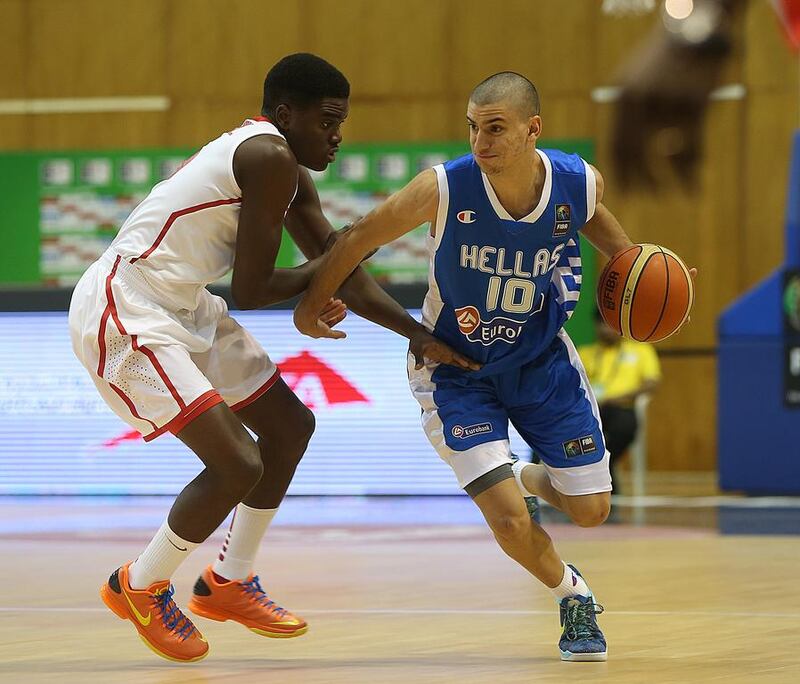Dubai // The 1992 Barcelona Olympics are famous in basketball history for introducing the US Dream Team to the world.
After almost a century of sending college kids to play in the Summer Games, the US turned loose their professionals for the first time, led by Michael Jordan, Magic Johnson and Larry Bird.
Their first opponents were Angola. Final score: US 116, Angola 48.
Not that the Africans were the only team routed by the Americans, who beat Croatia by 33, Spain by 41, Germany by 43 and Brazil by 44. Angola, meanwhile, defeated Spain by 20 and played three tight games.
That summer of 1992 was also Angola’s first time at the Summer Games and they returned for the next four tournaments as Africa’s lone representative.
Angola are little-recognised in basketball but in Africa they are a powerhouse. Their history with the sport can be traced to 1930, when a Portuguese army officer organised a game.
Since winning their first Fiba Africa Championship, in 1989, Angola have won 11 of 13 subsequent stagings of the tournament.
They arrived at the Fiba Under 17 World Championship in Dubai as African champions, winners at the first Fiba Africa Under 16 tournament last year.
They have reached the title game at the Fiba Africa Under 18 Championship in nine of that tournament’s 17 stagings.
From top to bottom, Angola has an argument as the most developed, cohesive basketball programme on the continent.
The U17 squad had an up-and-down group stage in Dubai.
After overpowering the Philippines in their first game, they were overpowered themselves by the US and fell to Greece 62-51 yesterday to finish third in Group A.
But they have shown flashes of the skill that makes them regular title-winners in Africa.
Bruno Fernandes, a well-built 2.03-metre forward, had 16 points and 14 rebounds in the loss against Greece. Silvio de Sousa is a similarly solid player who had 15 points against the Greeks and 17 against the Americans.
Joao Jungo is neither as tall, at 1.98m, nor as bulky as his compatriots, but his wiry athleticism makes him a dangerous scorer. He had 26 points against the Philippines.
Almost all of Angola’s players have long arms, jump well and boast good speed. As much as any team in the tournament, they have a group of athletes who look like elite basketball players.
They might have beaten Greece, whom they out-shot and for much of the game outplayed, had they made some of their free throws: they were a dreadful three-of-18 from the line.
Committing 24 turnovers to Greece’s 10 did not help.
“I think we can do better; we’ve made a lot of mistakes,” said Manuel Silva, the coach.
Still, Angola know they possess the talent to give almost any team trouble in this tournament.
The Angolan domestic league staged its first season in 1979. That league, the Campeonato Nacional de Basquetebol em Seniores Masculinos, or simply BAI Basketball, thanks to a sponsor, has been an incubator for Angolan talent for more than 30 years.
The top two clubs in Angola, Primeiro de Agosto and Petro de Luanda, account for 28 of the 36 league titles awarded. They are the Los Angeles Lakers and Boston Celtics of Angola. Those two clubs are also the employers of nine of the 12 kids sent to Dubai by the Angolan federation.
“Basketball right now is a popular sport in Angola because we have a lot of people that like it because it’s different from football,” said Silva, who played in the Angolan basketball league from 1984 to 1998.
Football remains the country’s most popular sport, he said, but interest is healthy in basketball.
“We have a lot of young boys who try to practise basketball,” Silva said. “Primero and Petro are big, big teams, good teams. We have a lot of kids in the first team with those clubs.”
Silva said the Angolan federation pays close attention to the nation’s top young talents. “Two months ago they go to Egypt and played with the first team, national team,” he said.
While many of the Africans who have been in the NBA emigrated to the US or Europe, sometimes as refugees, Angola is a stable nation of 18.5 million people that has been able to keep and support its best basketball players.
It is through this system that the game continues to grow in Africa’s dominant basketball country.
It is through this system, Silva hopes, that Angola will become a global power.
“We try keeping the best basketball in Africa, but we want more in the world,” he said. “This is first time we come to World Cup Under 17, but this team, the senior team, we want more.”
They are looking for international experience for their rising stars and to show the world the Angolan game. “We want to play against the best teams and try to win,” Silva said. “But we have a lot of work to do.”
jraymond@thenational.ae
Follow us on twitter at @SprtNationalUAE





